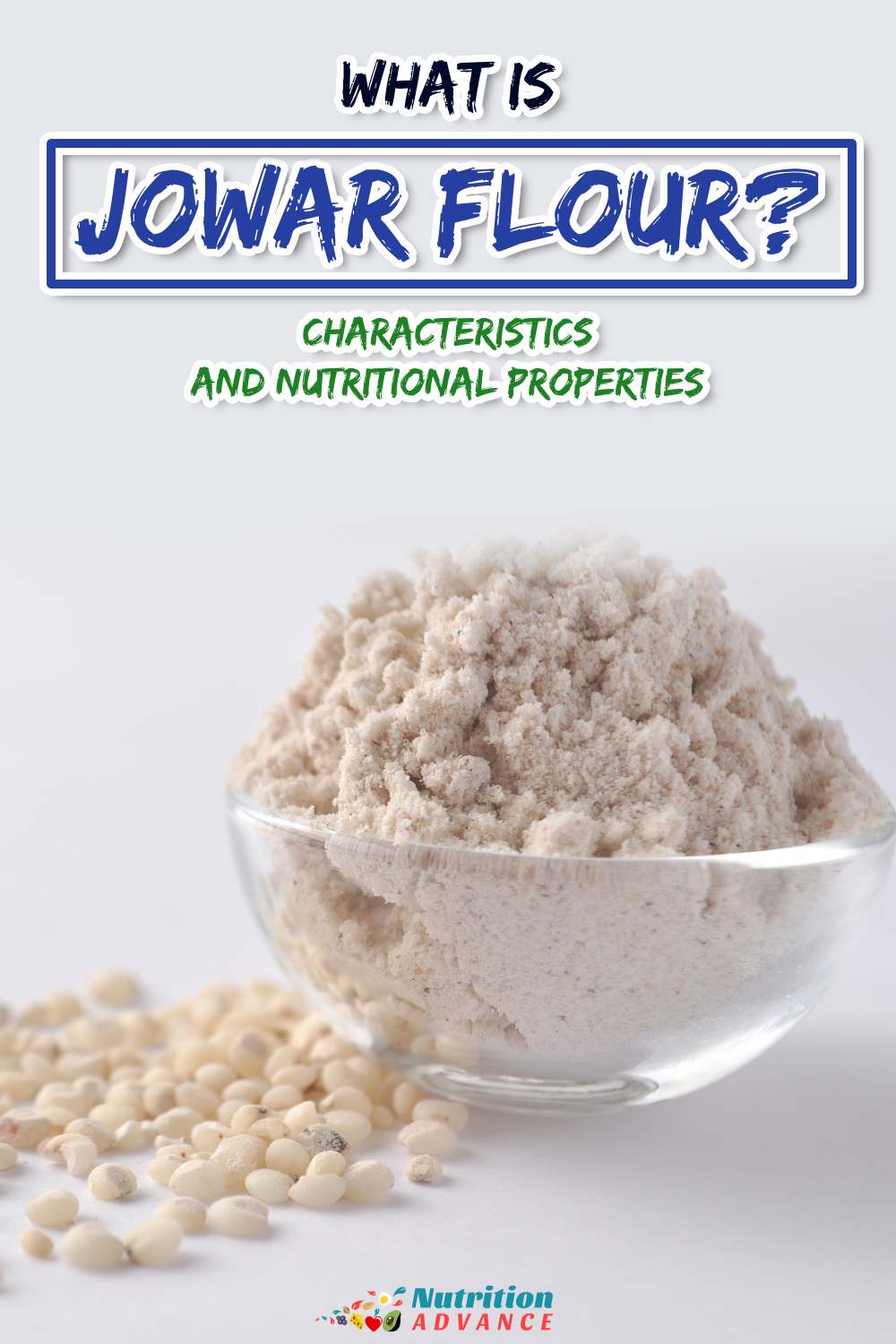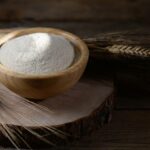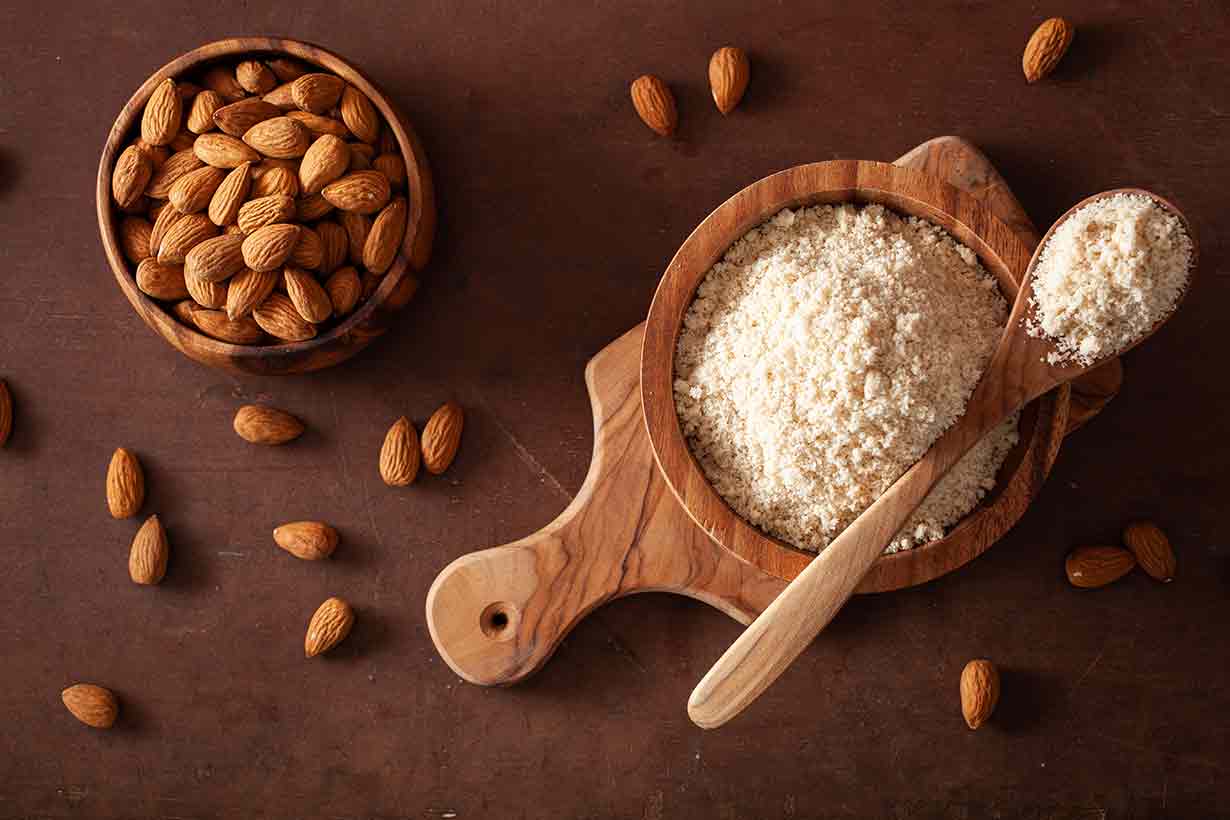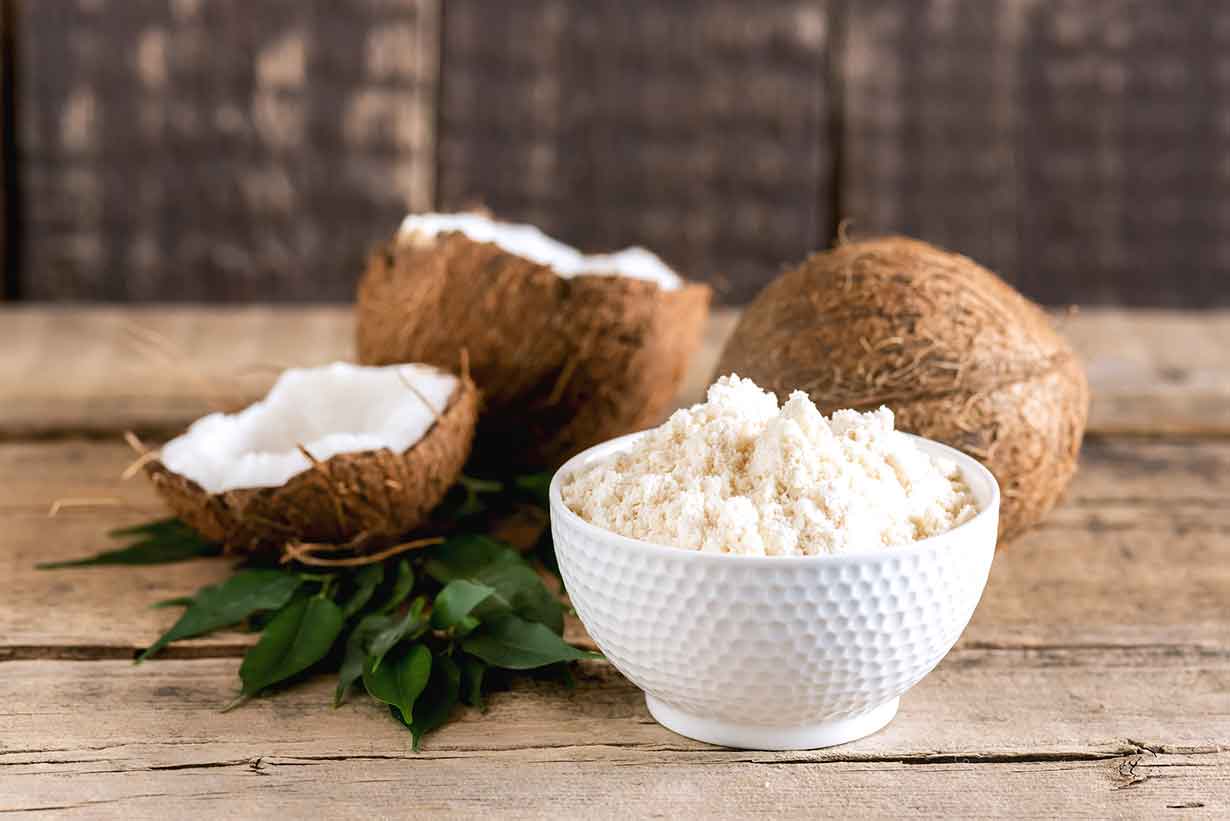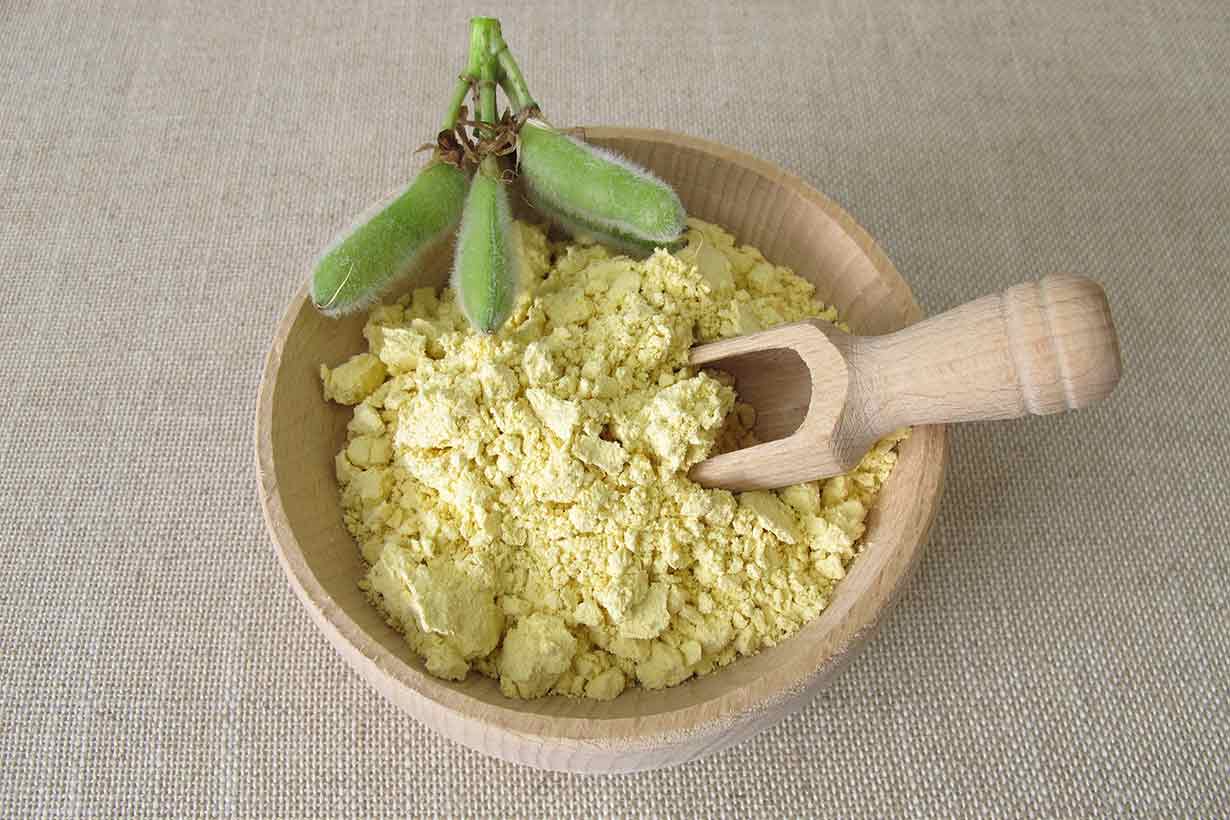What Is Jowar Flour? Nutritional Properties and Characteristics
Disclosure: This post may contain affiliate links. This means if you click on one of these links and purchase an item, we will receive a small commission at no extra cost to you. All opinions are our own.
Over recent years, there has been a growing demand for alternative flours that provide more nutritional value than wheat flour.
However, one lesser-known flour that deserves attention is jowar flour, a type of flour made from whole sorghum grains.
So, what exactly is jowar flour, and what nutritional benefits does it offer? This article explores the nutritional properties, characteristics, and uses of this flour.
Table of contents
What Is Jowar Flour?
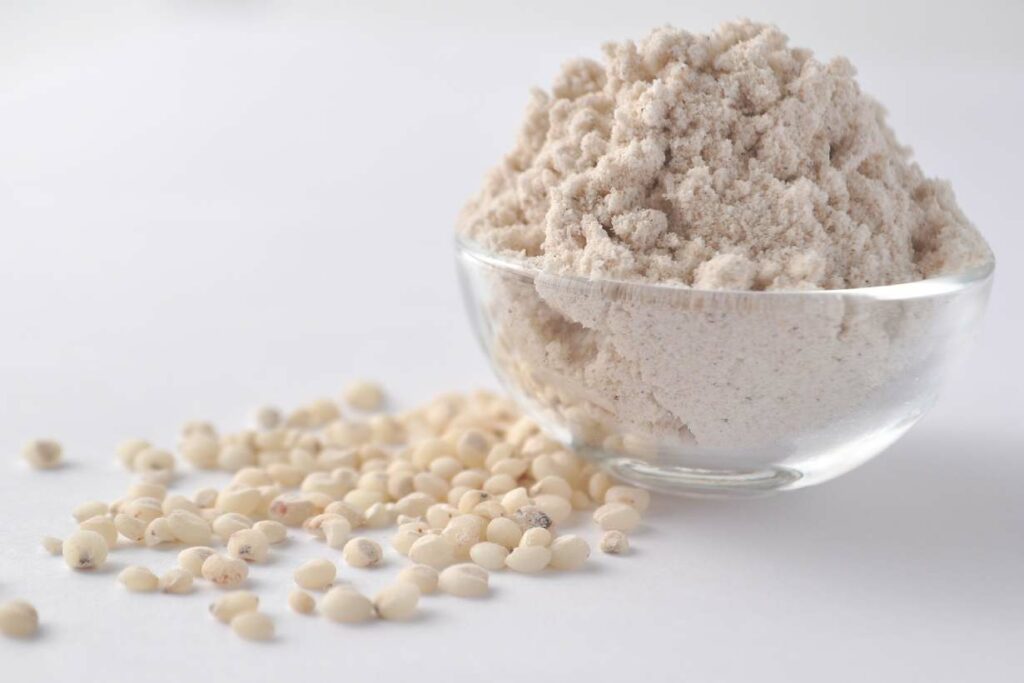
Jowar flour is also known as sorghum flour. However, there are some slight distinctions between the two.
In this context, jowar is a specific species of sorghum known as sorghum vulgare. Jowar, or sorghum vulgare, enjoys widespread popularity in many parts of Africa and Asia, where it is a key ingredient to make flat breads (1).
However, jowar flour is also available to buy in the United States and various other countries around the world.
When making jowar flour, the whole of the sorghum grain is used, making it a whole grain product. In addition to the names ‘jowar’ and ‘sorghum,’ similar flour products may also be go by the name of broomcorn, great millet, durra, or milo (2).
In terms of appearance, jowar flour bears a slight resemblance to regular wheat flour, but with a slightly coarser texture. Additionally, jowar possesses a paler color than wheat flour, exhibiting a uniform creamy-white look.
As for its taste profile, jowar flour offers a more distinctive flavor than wheat flour, featuring earthy and somewhat nutty notes.
Note: it is also possible for manufacturers to make refined jowar flour, similar to the refinement process for white wheat flour. This refined type of flour will not offer the same nutritional value as whole grain jowar flour, which is the focus of this article.
The Nutritional Values of Jowar Flour
Now that we have an understanding of what jowar flour is, let’s delve into its nutritional profile and discover what it provides.
The tables below present the nutritional values of whole grain jowar flour per 121-gram cup serving, with nutritional data sourced from the USDA’s FoodData Central database (3).
All percent daily values have been calculated by utilizing this USDA data in conjunction with the FDA’s published daily values (4).
Nutrition Facts
| Name | Amount | % Daily Value |
|---|---|---|
| Calories | 434 kcal | |
| Carbohydrates | 92.7 g | 33.7% |
| Fiber | 7.99 g | 28.5% |
| Sugars | 2.35 g | |
| Fat | 4.04 g | 5.2% |
| Saturated | 0.64 g | 2.3% |
| Monounsaturated | 1.14 g | |
| Polyunsaturated | 1.69 g | |
| Omega-3 | 0.07 g | |
| Omega-6 | 1.62 g | |
| Protein | 10.2 g | 20.4% |
| Cholesterol | 0 mg | 0% |
| Water content | 12.5 g |
As the table illustrates, jowar flour is primarily a source of carbohydrates, with moderate levels of fiber and protein, and a small amount of fat.
Vitamins
| Vitamin | Amount | % Daily Value |
|---|---|---|
| Folate, DFE | 30.2 mcg | 7.6% |
| Vitamin A, RAE | 0 mcg | 0% |
| Vitamin B1 (thiamin) | 0.40 mg | 33.3% |
| Vitamin B2 (riboflavin) | 0.07 mg | 5.4% |
| Vitamin B3 (niacin) | 5.44 mg | 34.0% |
| Vitamin B5 (pantothenic acid) | 0.65 mg | 13.0% |
| Vitamin B6 (pyridoxine) | 0.39 mg | 22.9% |
| Vitamin B12 (cobalamin) | 0 mcg | 0% |
| Vitamin C | 0.97 mg | 1.1% |
| Vitamin D | 0 mcg | 0% |
| Vitamin E | 0.61 mg | 4.1% |
| Vitamin K | 7.74 mcg | 6.5% |
Jowar flour is a ntoable source of B vitamins, especially B1, B3, and B6.
Minerals
| Mineral | Amount | % Daily Value |
|---|---|---|
| Calcium | 14.5 mg | 1.1% |
| Copper | 0.31 mg | 34.4% |
| Iron | 3.8 mg | 21.1% |
| Magnesium | 149 mg | 35.5% |
| Manganese | 1.52 mg | 66.1% |
| Phosphorus | 336 mg | 26.9% |
| Potassium | 392 mg | 8.3% |
| Selenium | 14.8 mcg | 26.9% |
| Sodium | 3.63 mg | 0.2% |
| Zinc | 1.97 mg | 17.9% |
As the table indicates, jowar flour contains a broad range of minerals.
Within its mineral composition, it offers significant amounts of copper, magnesium, manganese, phosphorus, selenium, and zinc.
Benefits of Jowar Flour
Here’s a summary of some key benefits of jowar flour.
High in Fiber
Jowar flour boasts a relatively high fiber content, providing 7.99 grams in a 120-gram cup serving (3).
This surpasses the fiber content of regular wheat flour, which offers only 3.38 grams per 125-gram cup (5).
Dietary fiber can offer several potential health benefits, including:
- Lowering LDL cholesterol (6, 7).
- Improving the composition of the gut microbiome (7).
- Slowing the postprandial (post-meal) blood sugar response, compared to refined carbohydrates (8)
- Reducing the risk of colorectal cancer (9).
- Potentially enhancing satiety, leading to better hunger control and subsequent reduced food/calorie intake (10).
Jowar Flour Is Gluten Free
In contrast to wheat, whole wheat, rye, and several other types of flour, jowar flour is gluten-free.
This gluten-free attribute makes it an appealing choice for individuals with celiac disease, gluten intolerance, or sensitivity to gluten.
Notably, a study published in the Journal of Food Science and Technology investigated the impact of baking with sorghum flour of various particle sizes. The study aimed to assess the flour’s effectiveness for making gluten-free sponge cake. Its findings revealed that sorghum flour with smaller particle size (<211.5 µm) produced “acceptable cake quality” (11).
Furthermore, research published in the Journal of the American Chemical Society affirmed that sorghum grains (and their derivatives) “can be definitely considered safe for consumption by people with celiac disease” (12).
Nutrient Rich
In contrast to some highly refined flours that have had their nutrients stripped from them, jowar flour offers a diverse array of vitamins and minerals.
Per 120-gram cup serving, it supplies over 25% of the daily value for seven different micronutrients (3, 4):
- Manganese
- Magnesium
- Copper
- Phosphorus
- Selenium
- Thiamin
- Niacin
However, if you seek the most nutrient-rich flour, kamut flour surpasses it in this regard.
Contains a Wide Range of Phytochemicals
Phytochemicals, such as polyphenols and carotenoids, are bioactive compounds naturally present in plants.
These compounds possess bioactive properties that can have a beneficial impact on the human body, offering potential health benefits (13, 14).
Studies exploring the composition of sorghum flours have revealed the presence of the following phytochemicals (15, 16, 17):
- Anthocyanins
- Apigenin
- Catechin
- Ferulic acid
- Gallic acid
- Lignans
- Luteolin
- Phytosterols
- Policosanols
Interestingly, a study published in the Food Chemistry Journal conducted an analysis of the nutrient composition, antioxidant activity, and phenol composition in different whole grain products. This study found that sorghum contained more phytonutrients and had higher antioxidant activity than other common grains (18).
How Does Jowar Flour Compared To Wheat Flour?
For a quick side-by-side comparison between jowar flour and wheat flour, the following table displays the basic calorie and macronutrient profile of each flour.
The table highlights the nutritional properties of both refined wheat flour (“white flour”) and whole wheat flour in comparison to jowar flour. All values are provided per 100 grams (3, 5, 19).Name Whole Grain Jowar Flour Refined Wheat Flour Whole Grain Wheat Flour Calories 359 kcal 364 kcal 340 kcal Carbohydrates 76.6 g 76.3 g 72.0 g Fiber 6.6 g 2.7 g 10.7 g Sugar 1.94 g 0.27 g 0.41 g Fat 3.34 g 0.98 g 2.5 g Saturated 0.53 g 0.16 g 0.43 g Monounsaturated 0.94 g 0.09 g 0.28 g Polyunsaturated 1.4 g 0.41 g 1.17 g Protein 8.43 g 10.3 g 13.2 g
As indicated by the table, the three flour varieties share a similar calorie and carbohydrate content.
However, whole grain jowar flour offers a significantly higher fiber content compared to refined wheat flour, with its fiber content being approximately 145% higher.
That said, it’s worth noting that whole grain wheat flour contains substantially more fiber (10.7g) per 100 grams compared to both whole grain jowar flour (6.6g) and refined wheat flour (2.7g).
Additionally, whole grain wheat flour boasts a significantly higher protein content.
Does Jowar Flour Have Any Downsides?
Up to this point, we’ve learned that jowar flour is a reasonably nutritious and gluten-free option, but are there any drawbacks to consider?
Here are some of its potential downsides.
Allergies
While sorghum is a gluten-free grain, it can still pose issues for individuals with allergies.
It is important to note that allergies to sorghum grains are relatively rare, but they can occur. Profilin and polcacin proteins in sorghum are thought to be behind sorghum allergy (20, 21).
Cost and Availability
One important factor to bear in mind is that jowar flour can be a bit more challenging to find compared to many other flour varieties.
As is often the case with less widely available food products, the price tends to be slightly higher, making jowar and sorghum flours more expensive than wheat flour.
The price range is closer to that of flours like coconut flour and almond flour than wheat flour varieties.
How To Use Jowar Flour
Jowar flour can be used in much the same way as regular wheat flour. For example, it’s suitable for making foods such as:
- Bread
- Cakes and cookies
- Flat breads
- Pancakes
- Pizza crust
- Tortillas and wraps
However, there are some considerations to keep in mind when using it as an alternative to wheat flour.
Can You Substitute Jowar Flour at a 1:1 Ratio For Wheat Flour?
While it’s possible to substitute jowar flour for wheat flour at a 1:1 ratio, here are a few important points to consider:
- Many people choose to use jowar flour alongside wheat or other flours. One reason for this is that sorghum flour lacks gluten, the protein in wheat that serves as a binding agent in baking. Gluten also gives elasticity and texture to food.
- Jowar flour has a distinct flavor compared to wheat flour, featuring mildly nutty, earthy notes. While this might not be a significant issue, it does mean there will be a slight difference in the flavor of baked goods made with it.
- If using jowar flour on its own, it is a good idea to incorporate a binding agent into the recipe to provide the structure that it lacks due to the absence of gluten. Bob’s Red Mill, a producer of jowar flour, advise that xanthan gum works well for this purpose (22). Slightly less than a teaspoon of xanthan gum per cup of jowar flour is around the right amount. Xanthan gum is a common food additive that functions as a thickener, and it is produced through the fermentation of glucose and sucrose (23).
Where To Buy Jowar Flour
Jowar (or ‘sorghum’) flour can typically be found in larger grocery stores in their baking section. Large stores like Whole Foods usually have a gluten-free section, where you should be able to find the flour.
Additionally, stores specializing in African or Indian foods are likely to stock jowar flour, since it is an important ingredient in these cuisines.
If you’re unable to find jowar flour locally, numerous online stores, such as Amazon, offer a wide selection of jowar flour products.
Final Thoughts
As highlighted in this article, jowar flour is a reasonably nutritious and gluten-free alternative to wheat flour.
Its gluten-free status and superior nutritional value compared to refined wheat flour may make it an appealing choice for some people.
That said, it’s important to note that jowar flour has a more distinctive taste than wheat flour, which can be more noticeable in baked goods.
Furthermore, jowar flour isn’t as nutritious when compared to whole wheat flour or kamut flour.

